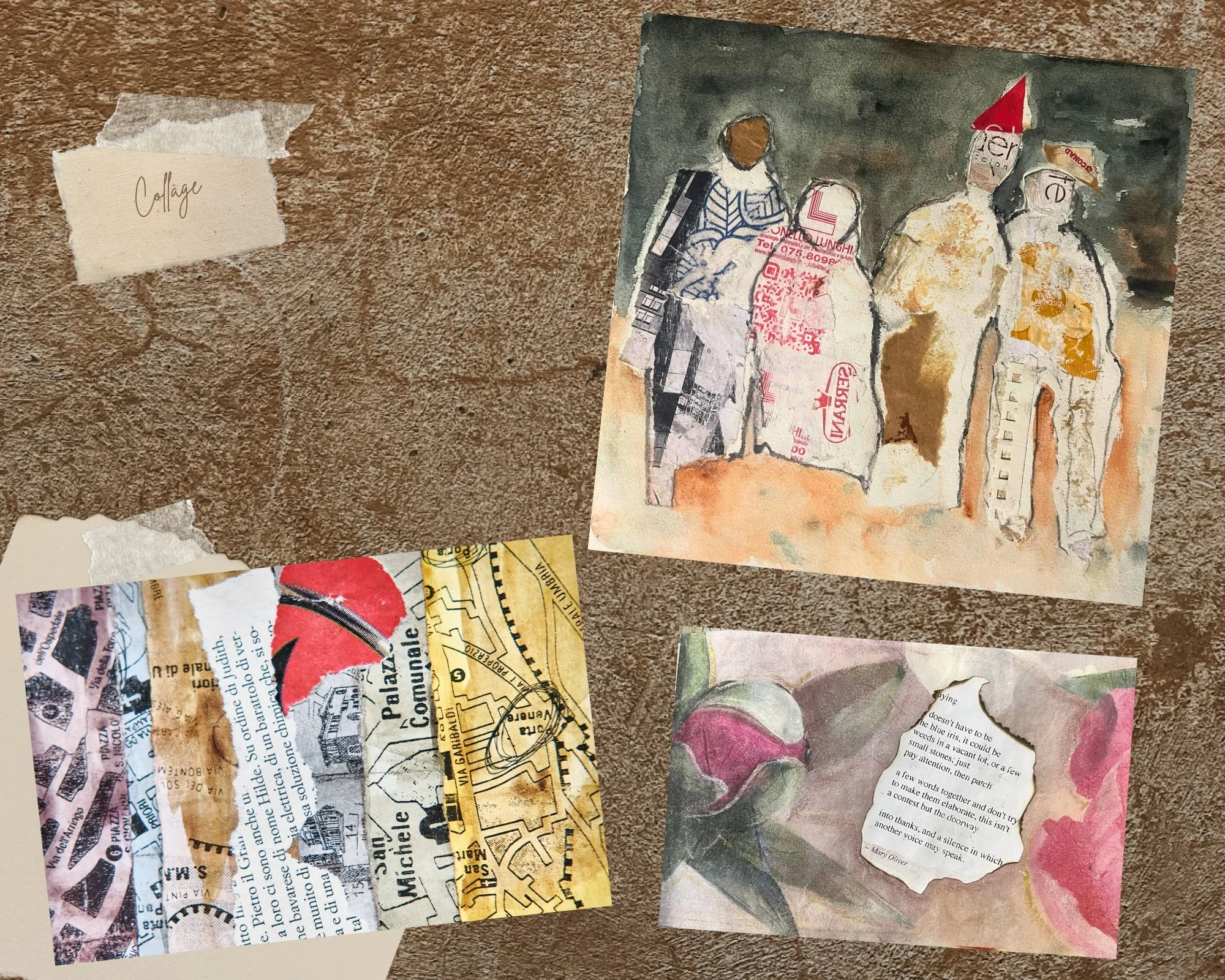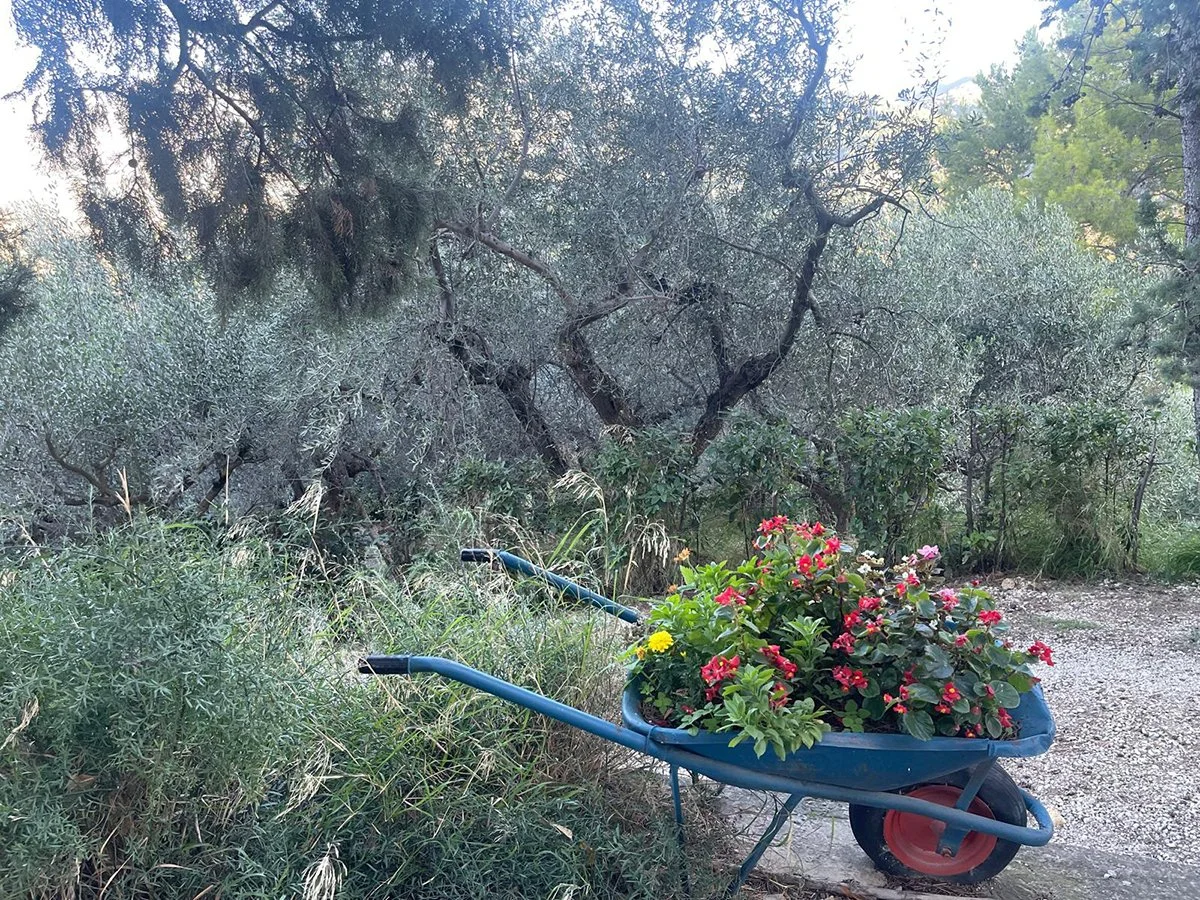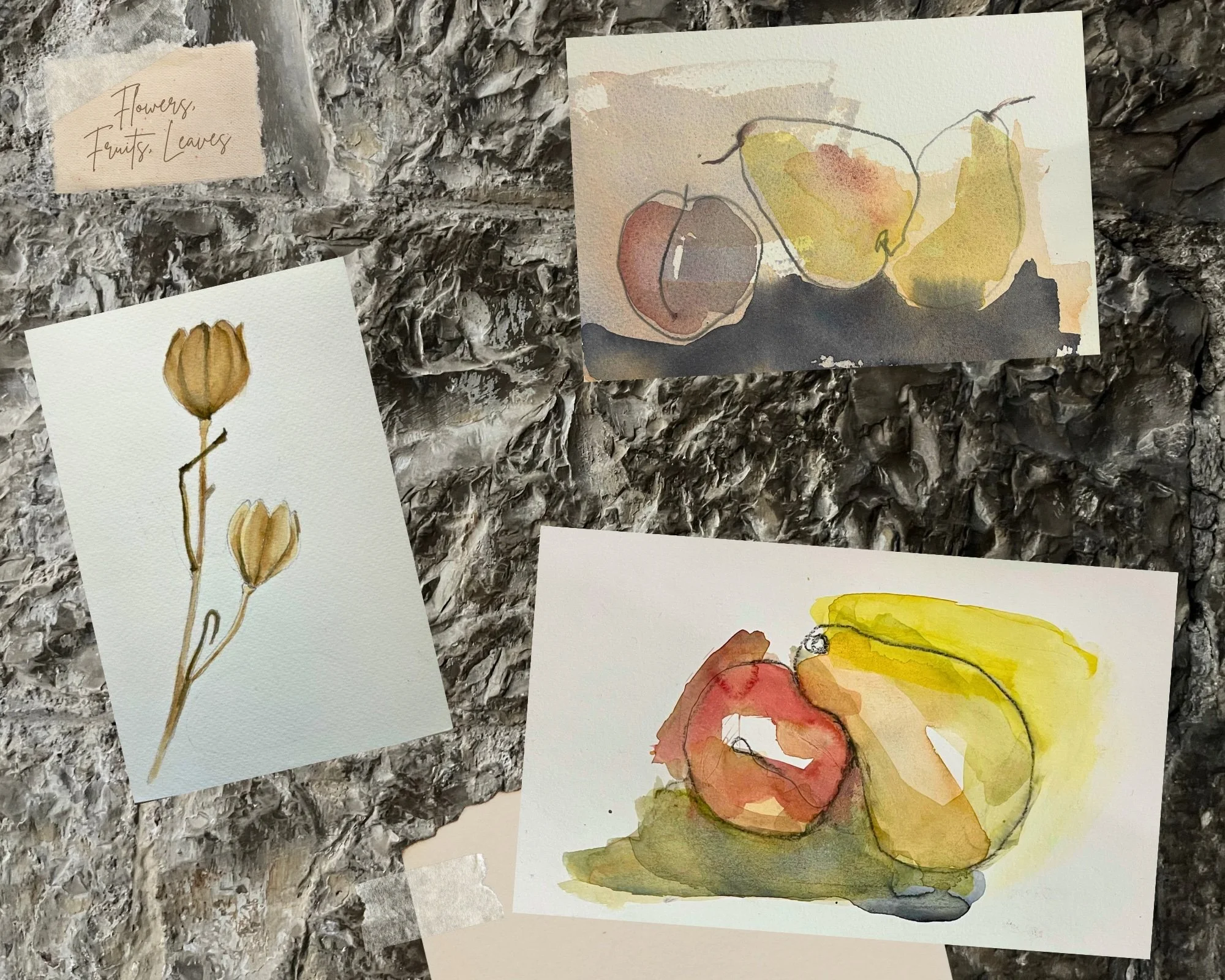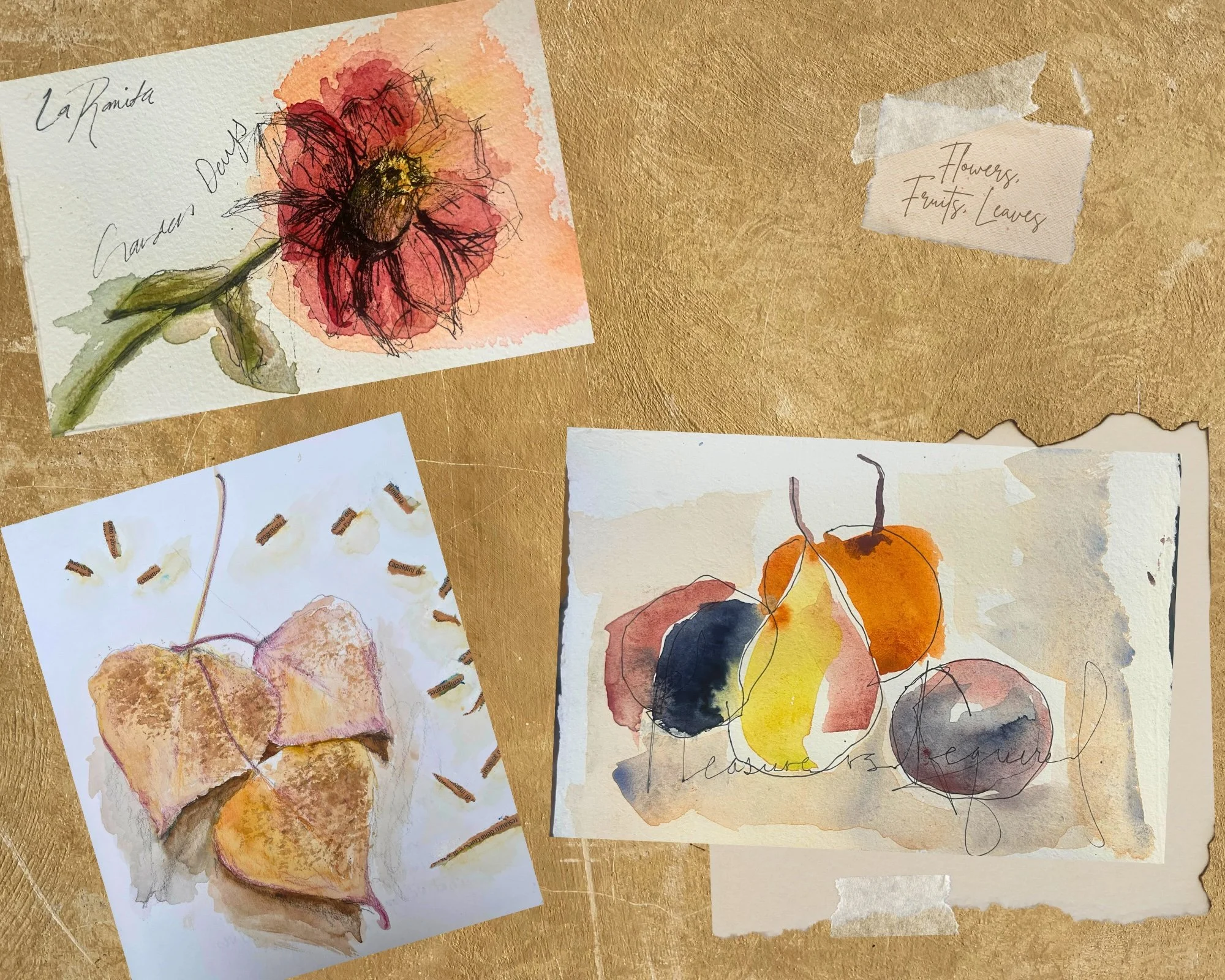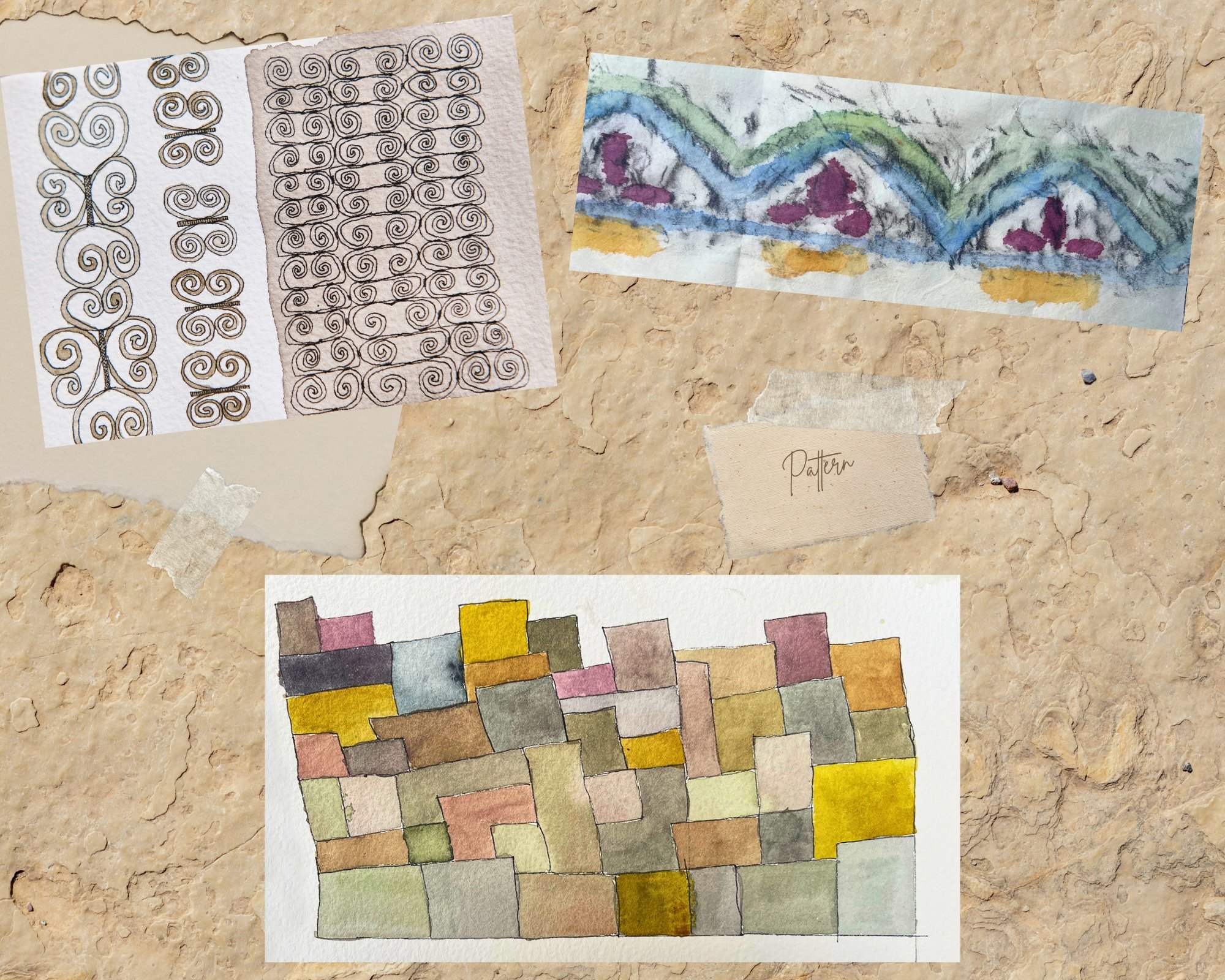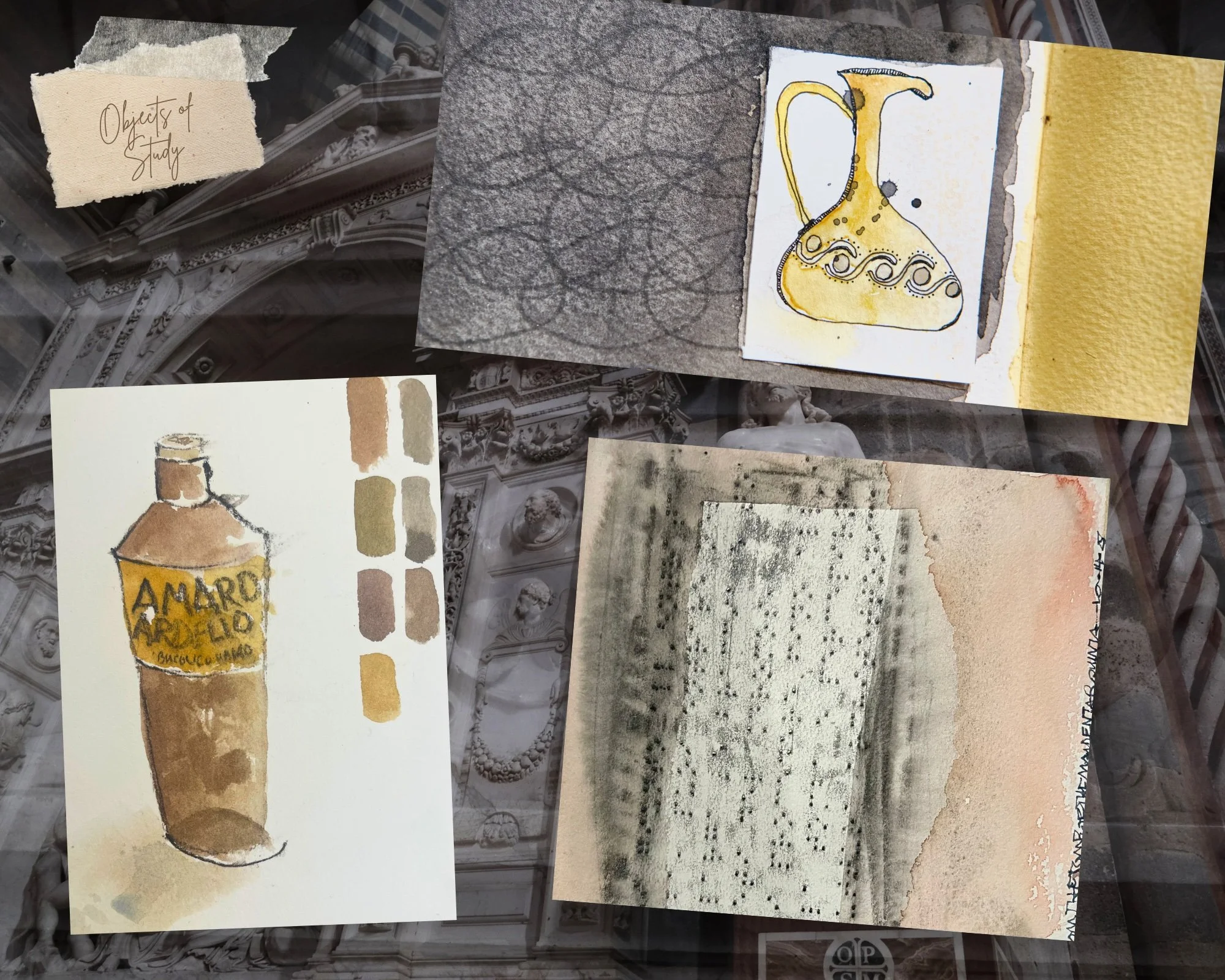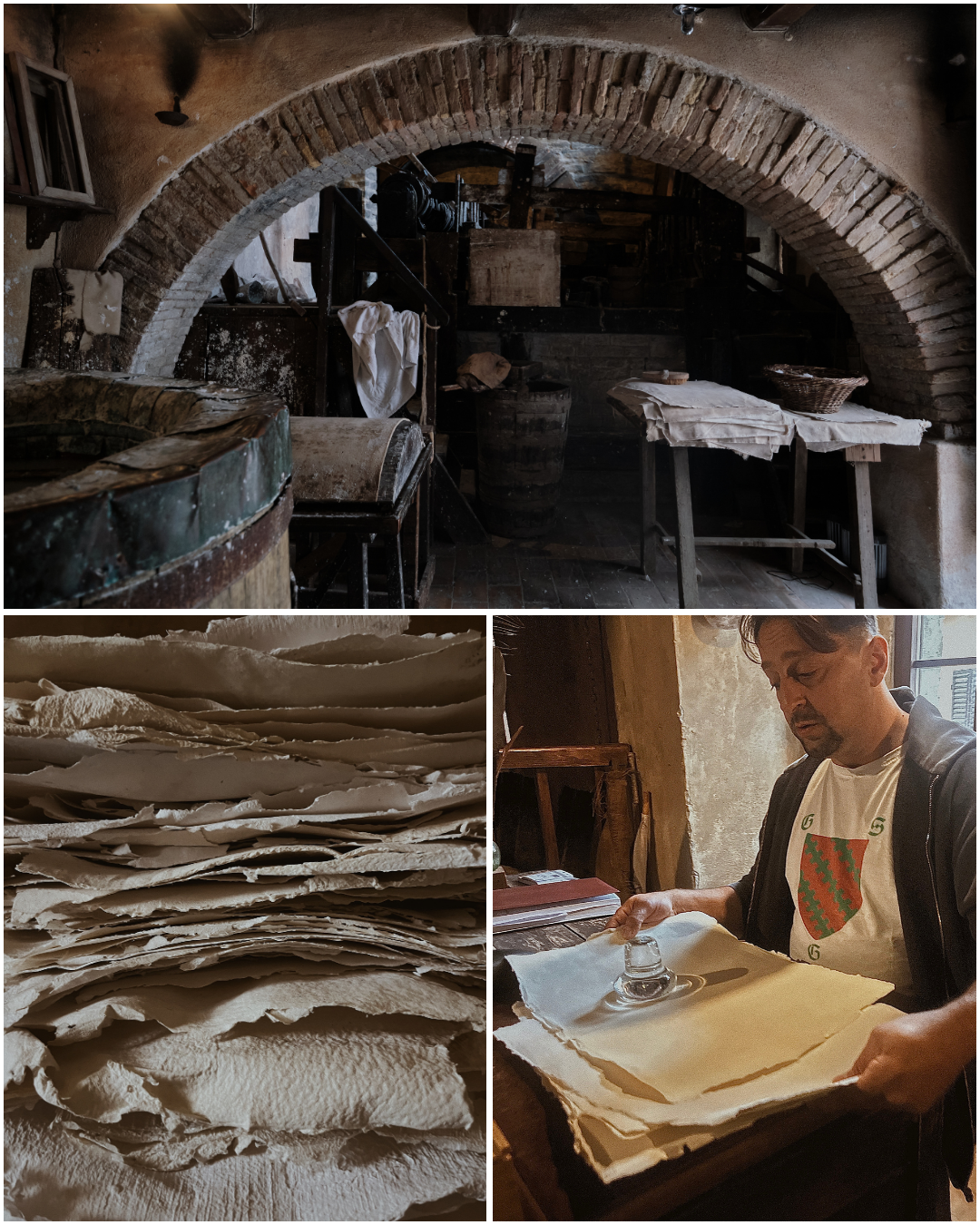Travel & Workshop Notes I: Italy 2025
(Gratitude to our professional photographer, Rachel Waters, who endowed us with a rich collection of images. Travel & Workshop Notes Part II will follow about my time teaching in Germany).
My Etruscan alphabet over watercolor sketches of Umbrian window and door © Laurie Doctor Sketchbook
Start with ancient walls, frescoes, paintings, the discovery of a studio in a side alley with an artist at work, immense handcrafted doors, cathedral bells, museums and add cappuccino, chocolate, wine, cashmere, fabulous hand stitched jackets and shoes. When I open to any of these I am drunk with pleasure. There are potted plants down every narrow alley in the most obscure places — bright cyclamen flowers against ancient cracked walls, olive trees planted in pots, and trumpet vines filled with colossal amber blossoms falling over the old stone wall. The narrow cobblestone street opens to a courtyard with a farmer’s market and more flowers, bright red peppers the size of winter squash and baskets of arugula, pears, pomegrantes and purple striped garlic.
All the small medieval Umbrian towns with their cobblestone street and piano music from a doorway filling the alley — the smell of spaghetti al pomodoro from an open window, the musical sound of Italian voices never in monotone and the overpowering fragrance of rosemary bursting out of a pot — the place itself brings a lovely forgetfulness and possibility.
I have just returned from a month in Europe, and the last two weeks were in Umbria. La Romita School of Art monastery, where we stay, has an olive grove that dates back to Capuchin monks in the 1800’s. The clothesline rests between the trees and below you can see one of the students hanging up his clothes, and a collage of the clothesline by another:
We bring our sketchbooks wherever we go. We alternate between time in our studio and visiting small Umbrian towns with delicious food, exhibitions, shops, museums and galleries. What follows is a small sampling of the students’ work, beginning with collage:
There is a garden outside our workshop space at the monastery, so flowers, seeds, leaves and fruit were subjects for watercolor and drawing, and pears were in season:
The gardener’s wheelbarrow at La Romita School of Art | Photo © Laurie Doctor
Watercolor Fruit and Flowers: © Mary Kellogg
One of the other focuses for our sketchbooks were all the hand crafted ancient doors and windows in the medieval towns, and the walls that had become, with time, paintings:
Walls, Doors & Windows: © Rosanne Olson (top left) | © Bryan Erdmann (bottom left) | © Joanne Kluba (right)
Walls, Doors & Windows: © Hollis Sutherland (top left) | © Suzy Farren (top right) | © Joanne Kluba (bottom left) | © Ann Langston (bottom right)
Walls, Doors & Windows: © Rosanne Olson (left) and Katrina Davidson (right)
Everywhere we went there were patterns — on the ancient Etruscan pottery, the gates, doors, tile floors, windows, cathedrals and walls. One of my favorite places is the Etruscan tombs and museum in Tarquinia:
And patterns in landscape & writing:
Patterns in Landscape & Writing: © Jan Black | Photo © Laurie Doctor
Rachel Waters taught us an alternative way to incorporate the photographic image - polaroid transfers. Through a separation of film layers and a soak in hot water, the emulsion image simply lifts delicately off the polaroid backing and floats to its new destination. In this case, we adhered the emulsion image to watercolor paper. Once dried, students explored writing, painting, and collage work with the transfers.
Student experiments with polaroid transfers on watercolor paper, using images they had taken in Umbria. | © Rachel Waters
What opens you to your hands and imagination? I’d love to hear from you.
This months featured artist is Jacqueline Muller. She has accomplished something that takes a long time: Her work does not look like anyone else’s; it has authenticity and delight. Take a look at more of her work here.
© Jacqueline Muller




